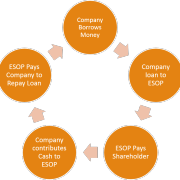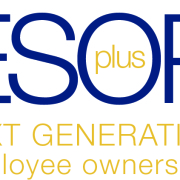ESOP vs. 401(k): Which Type of Plan Makes the Better Retirement Plan?
Our friends at the National Center for Employee Ownership (NCEO) recently responded to the query: Are ESOPs too risky of an investment to be a good retirement option for employees as compared to a more traditional retirement plan (like a 401(k))? Critics claim that ESOPs present too much risk. Not only are retirement assets concentrated in the company’s stock, but the employees depend on the same company for their regular paycheck and their retirement. Despite these concerns, there are significant features of ESOPs that make them a rational choice for retirement plans.
Benefits of an ESOP over a 401(k)
Features of ESOPs and the companies that offer these plans highlighted by the NCEO include:
-
Statistics show that ESOP account balances tend to be 2.2 times as large as 401(k) balances. ESOP accounts tend to be larger, because ESOP companies transfer on average 6% to 8% of pay per year into the plan. 401(k) accounts tend to be smaller, because a non-ESOP company generally transfer about 4% of pay per year into the 401(k), and this only goes to those employees who defer into the plan. A larger account balance may not reduce risk – both ESOPs and 401(k)s have some measure of risk – but a larger balance leaves more room for a decrease in value.
-
ESOP plans encompass all employees who meet the minimum service rules regardless of how much income the employee defers into the plan. A 401(k), by contrast, is only a benefit for the employees who defer income into this plan (which, according to some estimates, is only near 50%).
-
When the economy takes a downturn, both ESOP account balances and 401(k) account balances can take a downturn. But the effects of this downturn can impact employees differently. For example, employees may have a difficult time accepting a reduction in their 401(k) balances because such balances are comprised (at least in part) of their elective deferrals. But because an ESOP account balance comes from contributions of the company alone (in most cases), the loss is less personal.
-
Statistics show that between 1991 and 2010 ESOPs had a higher rate of return on average than 401(k) plans (9.1% rate of return for ESOPs compared to a 7.8% rate of return for 401(k) plans).
Contact Next Generation ESOP Plus with Questions
While there are situations and circumstances in which an ESOP might not make sense, these plans can offer substantial benefits. Contact us at ESOP Plus at (888) 840-6830 to discuss all your ESOP-related questions and concerns. We can help you evaluate whether an ESOP is right for you and help you set up an ESOP for your business.







